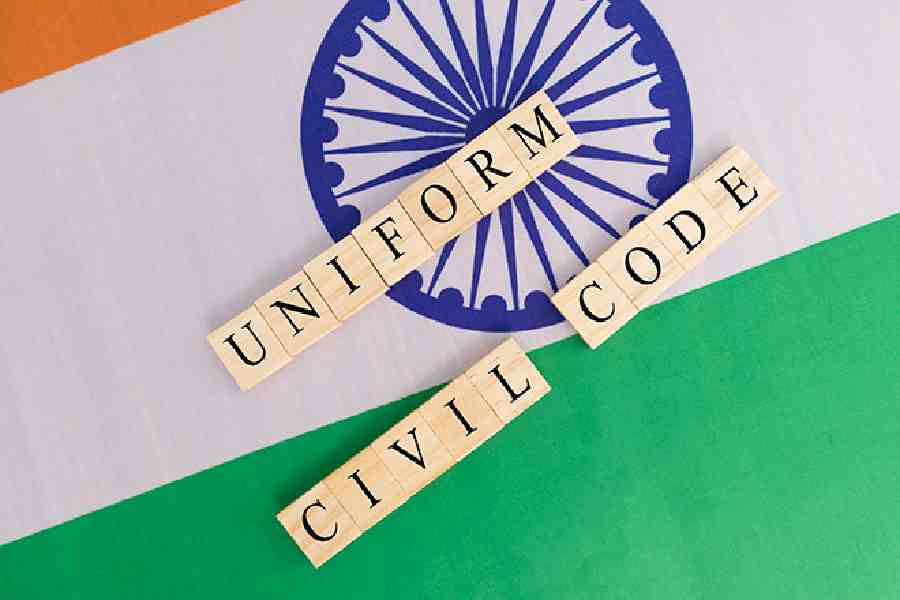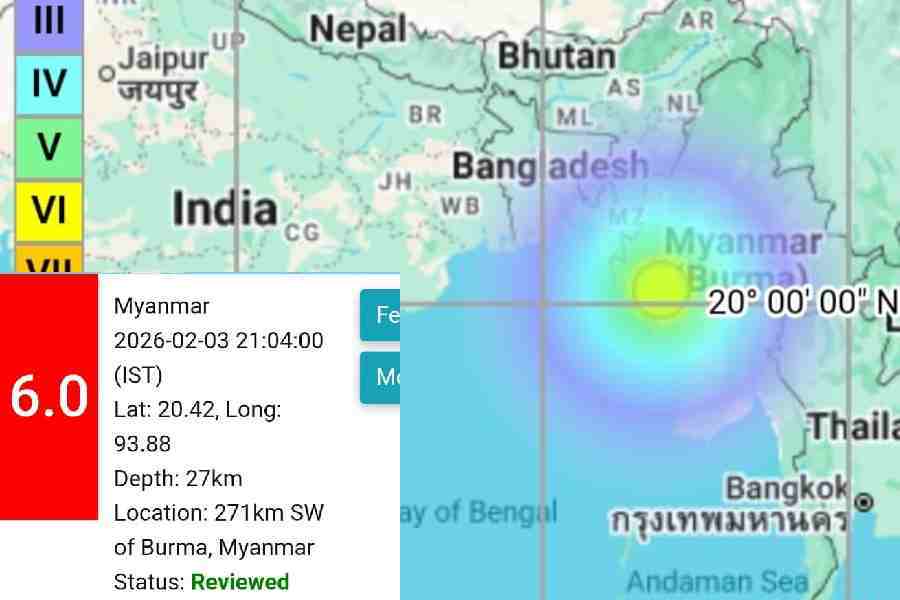The Adivasi Adhikar Mahasabha, a tribal outfit spearheading the protest against the Deocha-Pachami coal mine in Birbhum, has opposed the proposed uniform civil code (UCC) in a letter to the Law Commission of India.
The letter, sent on Friday, has spelt out clearly — with an example from Bengal — that any attempt to implement the UCC would cause disharmony in the society.
“Even if the Scheduled Areas are exempted from the UCC, large segments of the ST population living outside the Scheduled Areas would become vulnerable to unwarranted disruption in our way of life. Land and property alienation of tribal communities is rampant in states like West Bengal through various illicit channels,” the letter said.
“We are apprehensive that an ill-conceived UCC would only result in acceleration of such trends to our common detriment,” the letter, signed by Jagannath Tudu and Lakhiram Baski, two leaders of the tribal outfit, stated.
The letter by the tribal outfit comes at a time there is speculation that the Centre is considering the option of keeping Christians and some tribal pockets out of the ambit of the UCC.
A source in the Adivasi Adhikar Mahasabha said that Bengal, with a tribal population of over 52 lakh (according to the 2011 census), does not have any Scheduled Areas, like in neighbouring Jharkhand, under theFifth Schedule of the Constitution.
The Fifth Schedule deals with the administration and control of Scheduled Areas and Scheduled Tribes in at least 10 tribal states like Jharkhand and Chattisgarh. The Sixth Schedule contains provisions concerning the administration of tribal areas in states like Assam, Meghalaya, Tripura and Mizoram.
“We are afraid that the UCC may be formulated by exempting Scheduled Areas. The fact is there are crores of tribal people across the country who live beyond the Scheduled Areas or states. Here in Bengal, we live with people of other communities, and the diversity of our culture is our wealth for years. The central government should refrain from formulating the UCC, which would only cause disharmony among people of different communities,” Tudu, one of the convenors of the Adivasi Adhikar Mahasabha, said.
According to him, the tribal population in Bengal is in excess of one crore. Tudu said the letter sent to the Law Commission had highlighted that the implementation of the UCC would have a direct impact on tribal practices related to marriage, divorce, inheritance of ancestral property and others.
Several social activists have come forward to support the argument of the tribal community.
“The imposition of a uniform civil code from above will disrupt the tribal way of life and undermine the culture and identity of adivasi communities,” said Prasenjit Bose, an economist involved with the tribal movement against Birbhum’s Deocha-Pachami coal mine.
Bose has also sent a submission to the Law Commission on the UCC.
“The social environment of the country, vitiated through majoritarian communal politics and hate crimes, has moved in a direction quite opposite to one where a voluntary spirit of reforming family laws can be evolved across diverse communities. Restoration of harmony, fraternity and mutual respect between communities is a precondition for initiating civic consultations towards reforms for equitable and gender-just personal laws,” he added.










